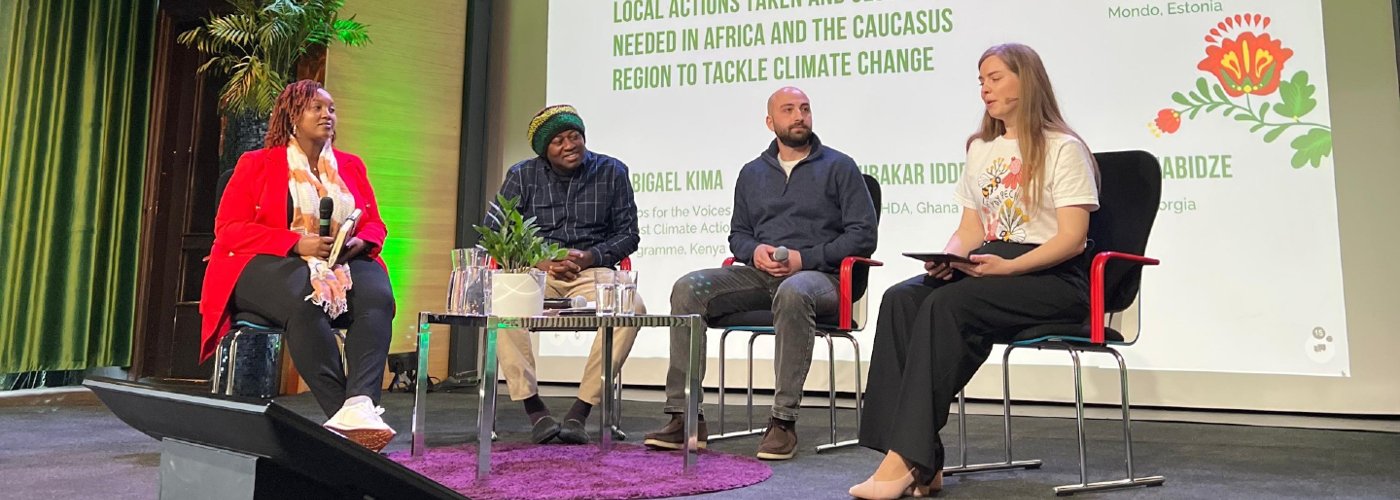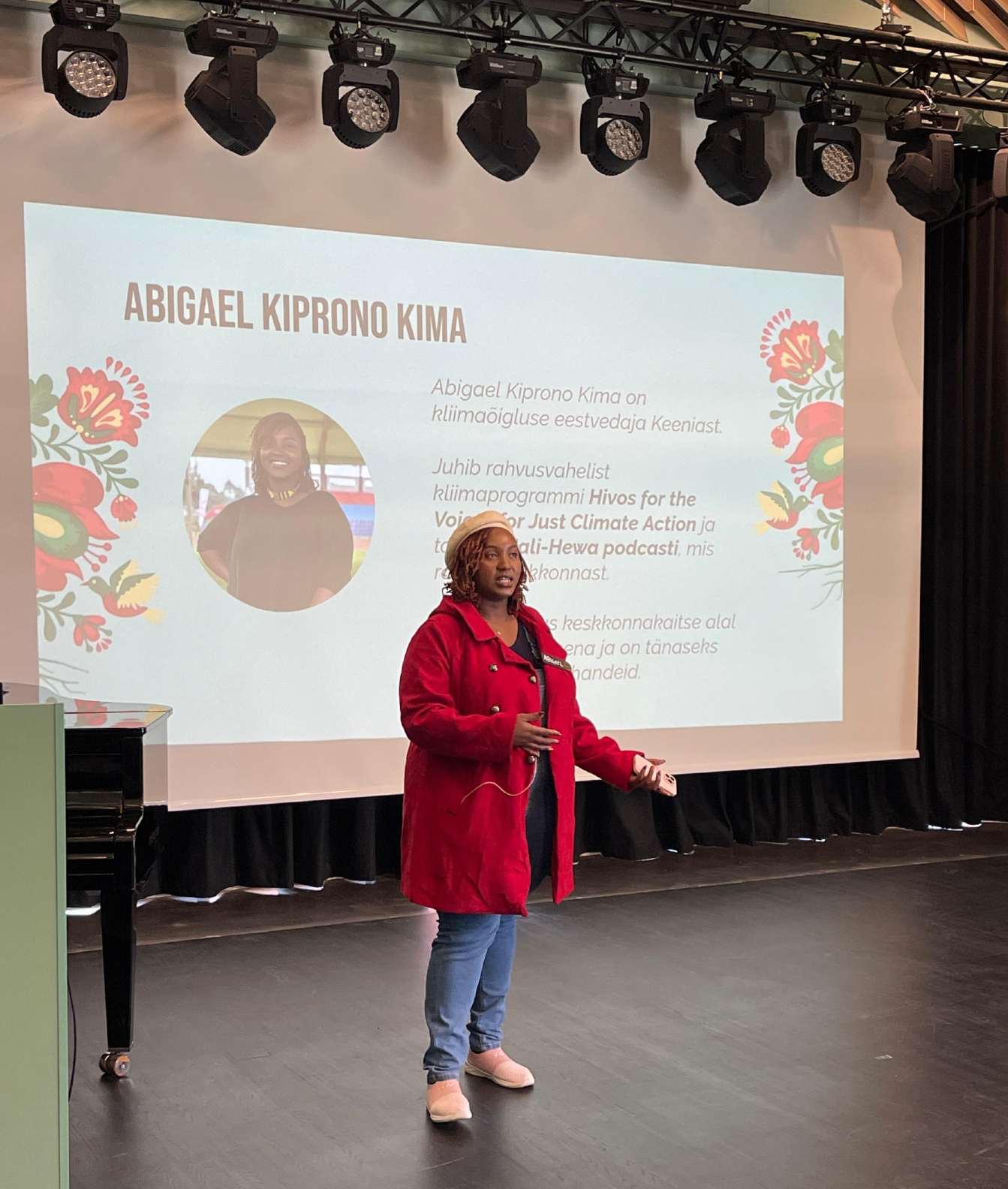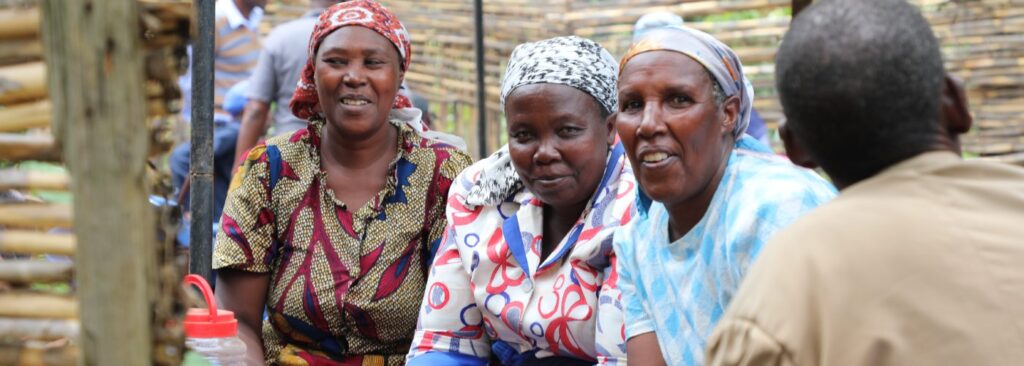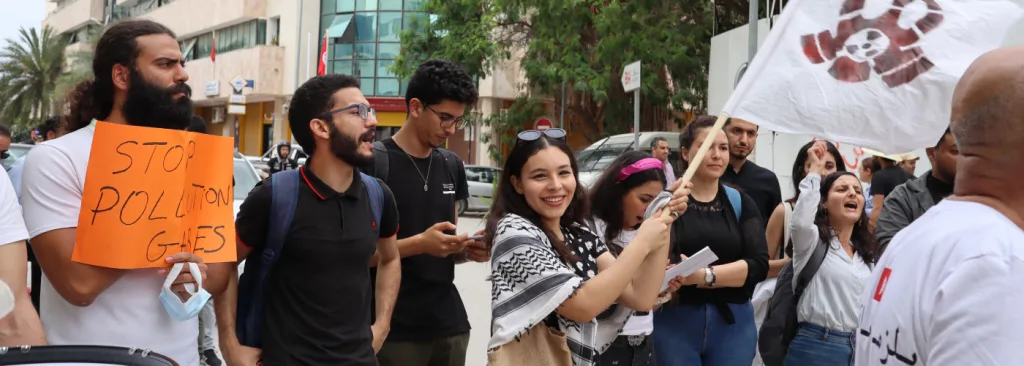The first international environmental justice conference in the Baltics took place at the beginning of April. Diverse voices from around the world came together to reflect on environmental justice and on the future of climate action. Hivos’ Abigael Kiprono made her way to Estonia to talk with Estonian Members of Parliament, engage with youth, and participate in workshops. We asked her about the highlights of her visit.
The conference ‘Shared Earth, Shared Responsibility’ in Tallinn, Estonia, was organized by MONDO and the Estonian Environmental Law Center. On April 8, Abigael joined a youth event in Narva, ahead of the main conference. Along Estonia’s eastern border with Russia – where Narva is located – communities have long depended on fossil fuels, such as oil shale. Now, faced with the urgent need to transition to clean energy, the city grapples with uncertainty, fears of job losses, identity shifts, and public pushbacks.
“Narva is a particularly meaningful place to engage young people,” says Abigael. “Many of them spoke about their fears for the future, as job opportunities tied to oil shale decline and pressure to move away from fossil fuels intensifies.”
“I explained my personal context of climate change, sharing stories from Kenya where droughts and flash floods ravaged livelihoods just last year. But we also discussed hope in community-led solutions. It was interesting to hear just how differently we experience climate change impacts because of our geographical differences, but we actively tried to find ways to build solidarity in mitigating and adapting to climate impacts.”
Amplifying voices of frontline communities
Abigael also spoke about how she built the Hali Hewa Podcast and why storytelling for climate impact is so important. “I explained why amplifying the voices of frontline communities is a central part of my work. It was beautiful to see how storytelling resonated with young people in the room.”
Professor Joyeeta Gupta opened the conference by grounding the audience in the science of planetary boundaries, addressing the urgency of staying below 1.5°C warming, and stressing that a just energy transition is critical to avoiding catastrophic climate impacts. She stated that vulnerable African countries are moving from no energy to renewable energy, which needs collective support. Big oil companies and the most polluting countries must align to ambitious commitments to reverse the damage now, or the transition will be more expensive in the long run.
During the conference, Abigael – together with speakers from Kenya, Ghana, Georgia, Ukraine, and the United States – met with six Estonian Members of Parliament. “We exchanged insights on the key climate issues shaping our countries. It was especially striking to hear the Estonian MPs speak about their current priorities, particularly how the ongoing war in Ukraine has shifted political and financial focus toward defense spending. Anastasiia Bushovska from Ukraine shared data her organization, EcoAction, collects to track the environmental costs of the conflict in Ukraine, a sobering reminder that climate justice cannot be separated from global geopolitics.”
“It was an important conversation, especially with MPs in the room, who have the power to shape policy,” says Abigael. “Conversations and spaces like this remind us why contextualizing climate conversations is critical; transition means quite different things depending on your location. In Narva, it’s about loss of jobs, in Kenya, for many, it’s about getting access to energy for the first time. Climate solutions must meet local realities because context is everything.”
“Listen carefully, act locally, and build solidarity globally”
When Abigael took the stage, she shared some of Hivos’ Voices for Just Climate Action (VCA) program accomplishments in Kenya. “I told them how VCA – among many other initiatives – tries to give local communities a direct voice in decision-making. We support local partners in shaping national and county-level climate policies to better reflect the priorities and experiences of grassroots communities.” She also highlighted initiatives like the Next Level Grants Facility (NLGF). “We are providing accessible and flexible funding to small, informal organizations and marginalized groups including women, youth, Indigenous Peoples, and people with disabilities so they can drive locally led climate action in ways that are meaningful to them.”
Besides sharing experiences on climate justice and climate storytelling, what Abigael took from the conference is that – in climate change – everyone, in their own context, has a different role to play. “Environmental justice demands that we listen carefully, act locally, and build solidarity globally. The earth is our shared responsibility, and we need to act in our different capacities and our own contexts to protect the one thing that provides everything we need for survival, not just for us but for the generations that are to come.”





